Georgia's Carbon Footprint Keeps Shrinking as its Economy and Population Grows
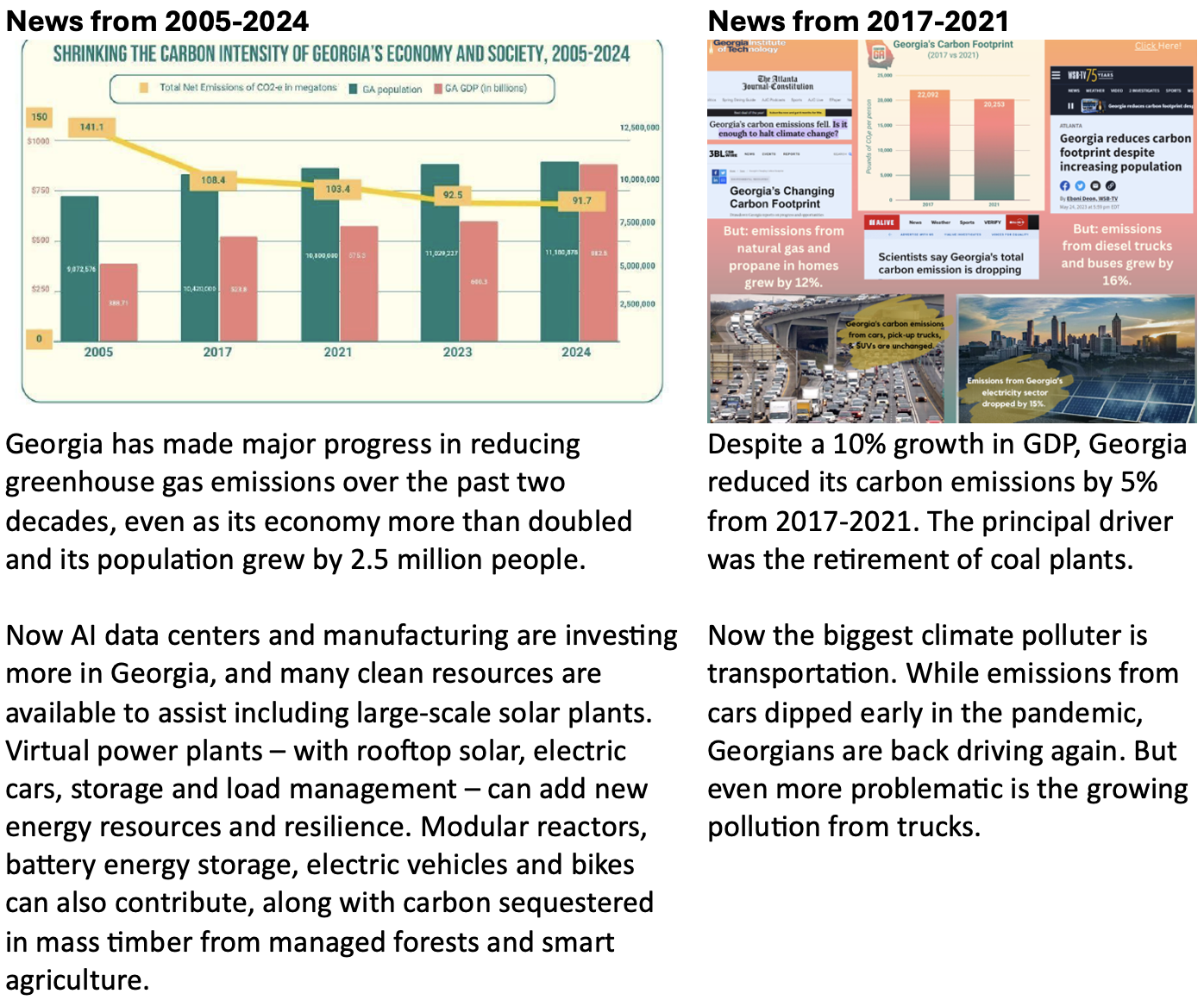
News from 2005-2024:
You can read the article here (forthcoming).

News from 2005-2024:
You can read the article here (forthcoming).
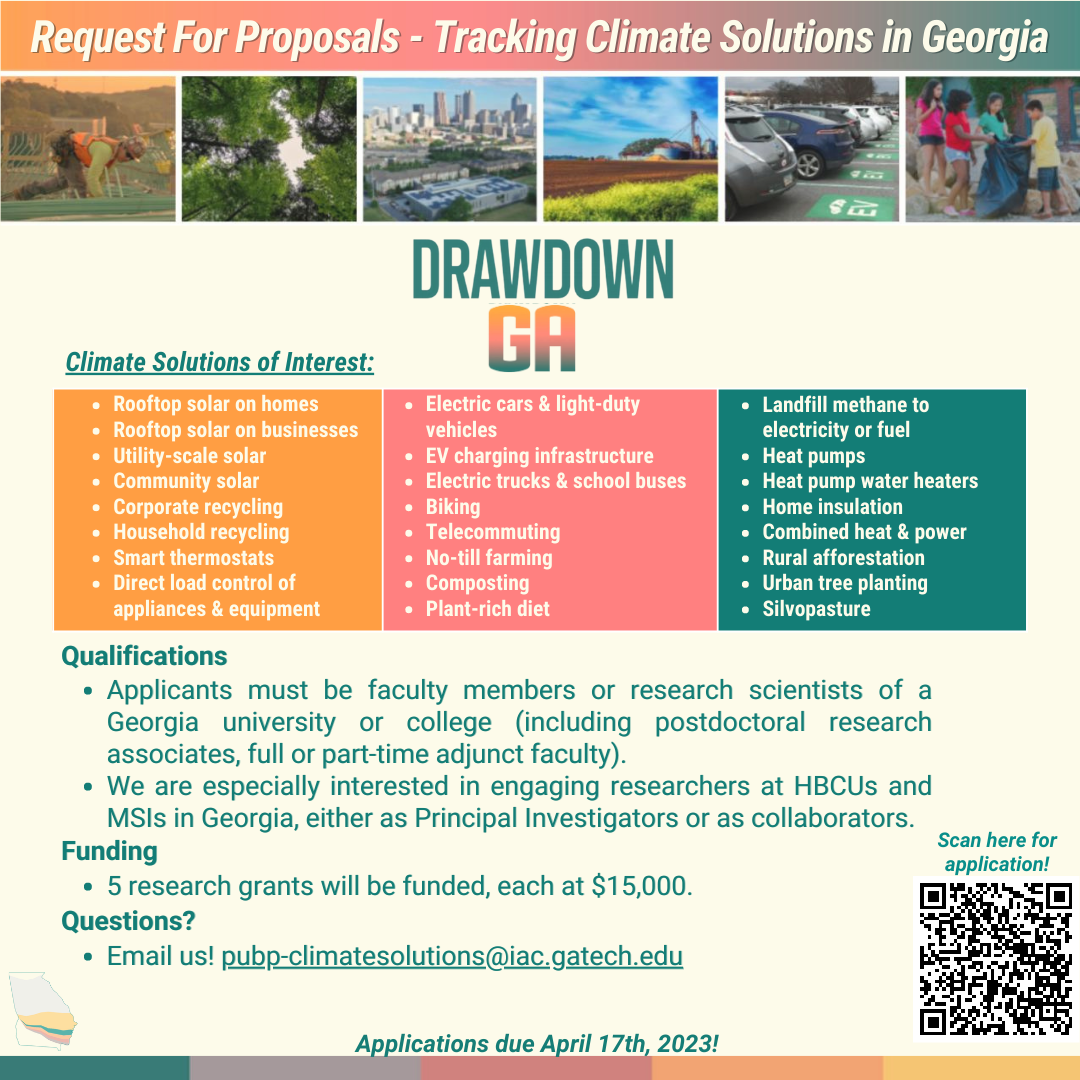
On behalf of Drawdown Georgia, CEPL is pleased to announce the availability of research grants to examine
the adoption and use of high-impact climate solutions in Georgia. This solicitation invites faculty and
research associates from Georgia Universities and Colleges to submit proposals to track climate solutions
around the state. By tracking the implementation of climate solutions, we can identify places that are
leading vs lagging in adoption, winning approaches that can be replicated, and barriers that need to be
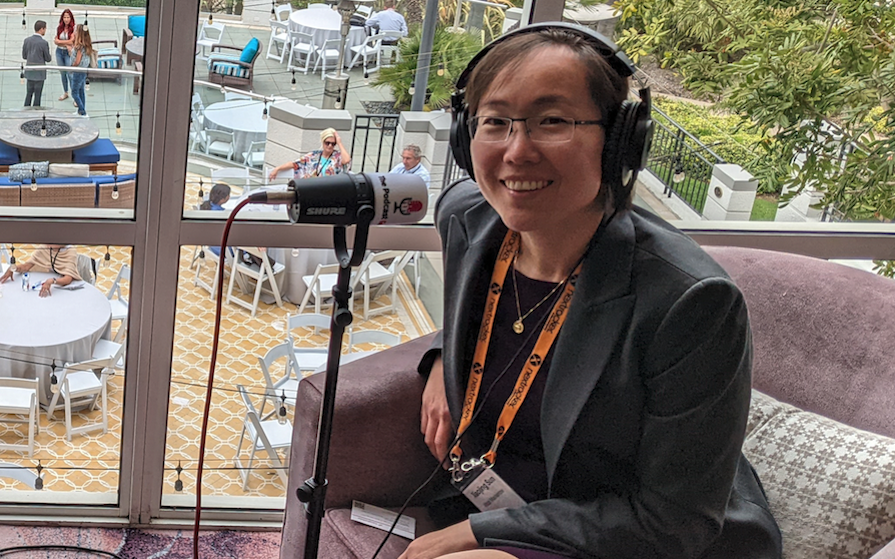
On June 8, 2022, Dr. Xiaojing Sun gave The Interchange podcast at the Wood Mackenzie Solar and Storage Summit. She discussed the state of the global market for solar systems, the impact of U.S.
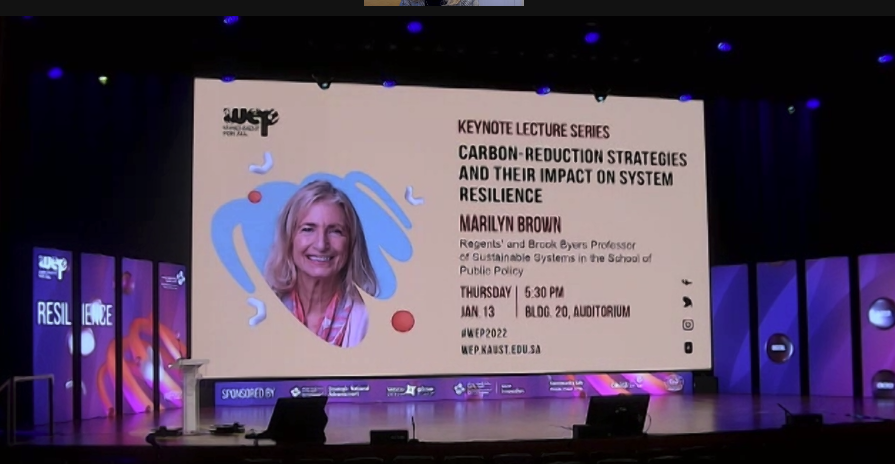
Marilyn Brown gave a virtual keynote address at the Climate and Resilience Conference at the King Abdullah University of Science and Technology, on January 13, 2022. She emphasized policy and technology opportunities to deliver solutions aimed at decarbonizing the electricity system in ways that also enhance resilience and equity.
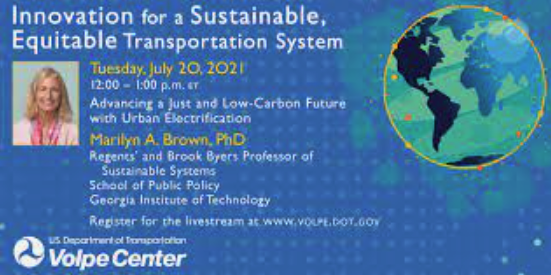
Dr. Marilyn Brown recently presented on advancing just, sustainable futures with urban electrification at the U.S. Department of Transportation's Volpe Speaker Series on Innovation for a Sustainable, Equitable Transportation System. For more information, read the abstract below:
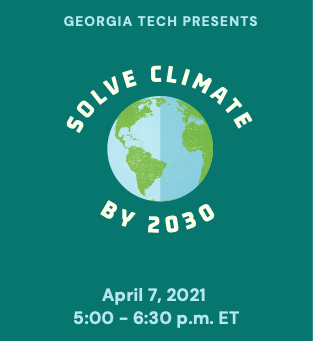
On April 7, 2021 the Climate and Energy Policy Lab (CEPL) hosted its second annual climate dialogue -- Solve Climate by 2030. Top climate scientists from around the world are in agreement: we have ten years to curb global warming and mitigate climate change under a 3 degree Celsius temperature rise. Solve Climate by 2030 is an international project started at Bard College to find local and state level solutions to carbon emissions and curb global warming by the year 2030.

Dr. Benjamin Sovacool, a Professor of Energy Policy at the Science Policy Research Unit (SPRU) at the University of Sussex Business School in the United Kingdom, delivered a virtual lecture focusing on the future of low-carbon source mobility as well as barriers to adoption. Dr. Sovacool's lecture answered three key questions:
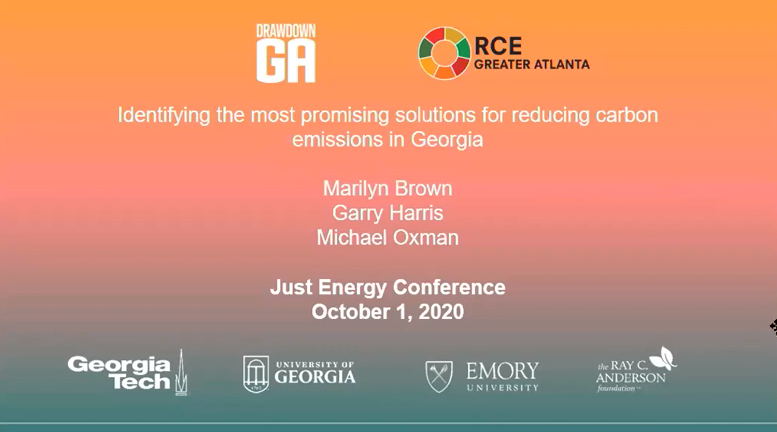
On October 1, 2020, Dr. Marilyn Brown, Garry Harris, and Michael Oxman presented Drawdown Georgia's high impact solutions at the Partnership for Southern Equity's Just Energy Summit. The presentation highlighted the challenges and opportunities related to equitable solutions with a focus on rooftop solar and retrofitting. As part of Drawdown Georgia, the Beyond Carbon Working Group looks at how carbon mitigation solutions intersect and impact public health, equity, jobs, economic growth and the environment.
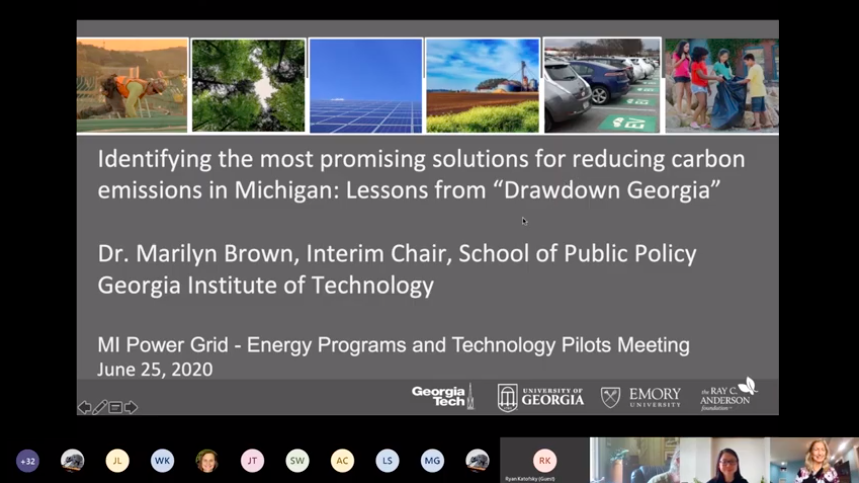
On June 25th, Dr. Marilyn Brown gave an overview of the methodology and preliminary findings of Drawdown Georgia to the Michigan Public Service Commissioners (MPSC) and a few dozen stakeholders. Brown’s presentation was part of a day spent discussing emerging climate technologies and potential pilot programs for the state of Michigan.
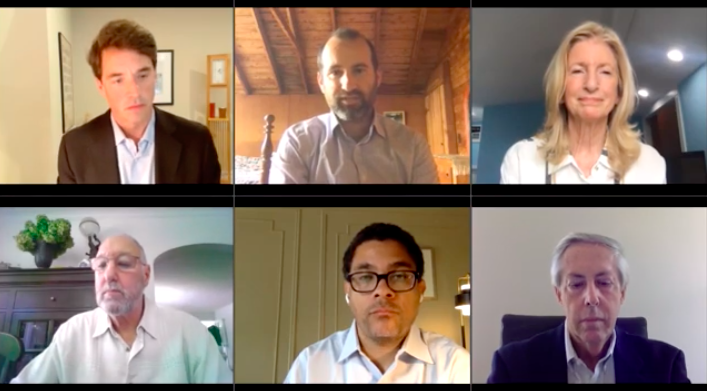
On July 15, Dr. Marilyn Brown participated in a webinar for Our Energy Policy on “Building Electrification: The Politics, Economics, and Infrastructure Around Converting America’s Building Stock.”
The panel discussed the main political, economic, and infrastructure issues surrounding building electrification in the United States. The discussion was moderated by Adam Zurofsky, former director of state policy and agency management for New York. Other panelists included:
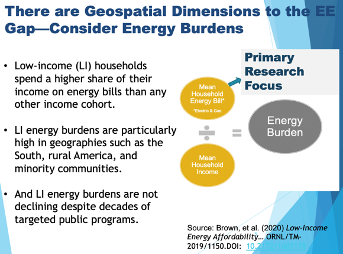
Dr. Marilyn Brown recently spoke on the need for "justice-aware" energy planning and policymaking during a National Academies of Sciences, Engineering, and Medicine webinar on ethics and biases in the geographical sciences.
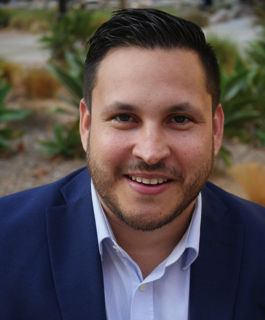
Omar Isaac Asensio is an assistant professor in the School of Public Policy who teaches several Master of Sustainable Energy and Environmental Management (MSEEM) courses in data science, policy, and management. He was recently awarded the National Science Foundation’s (NSF) CAREER Award, which is given to those "who have the potential to serve as academic role models in research and education and to lead advances in the mission of their department or organization."

A study led by Omar Asensio, an assistant professor in the School of Public Policy who also teaches several courses for the Master of Sustainable Energy and Environmental Management (MSEEM), was recently published in the June 2020 issue of Nature Sustainability.
The study harnesses machine learning techniques to provide the best insight yet into the attitudes of electric vehicle drivers towards the existing charger network. Its findings could help policymakers focus their efforts on electric vehicle policy.

Julian Powell, a master's student in Sustainable Energy and Environmental Management (MSEEM), was recently part of a team tasked by the Georgia House of Representatives Rural Development Council to prepare a report on the decommissioning of solar panels. Powell currently interns at the Georgia Public Service Commission (GPSC), where he’s part of the Energy Efficiency and Renewable Energy team.
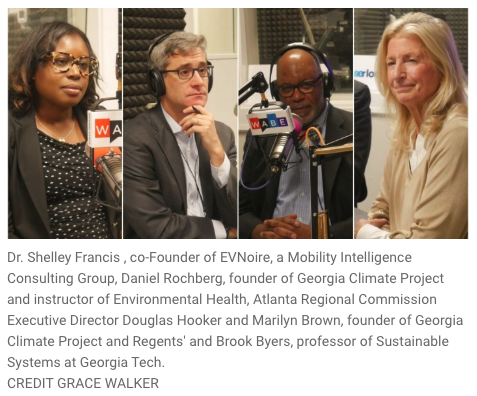
Dr. Marilyn Brown, founder of Georgia Climate Project at Georgia Tech shares the Georgia Drawdown project's carbon neutrality strategy. Listen to the interview at wabe.org (minute 32 begin Dr. Brown's comments). Dr. Brown promotes the science of climate change and the exciting partnerships developing to shift policy.
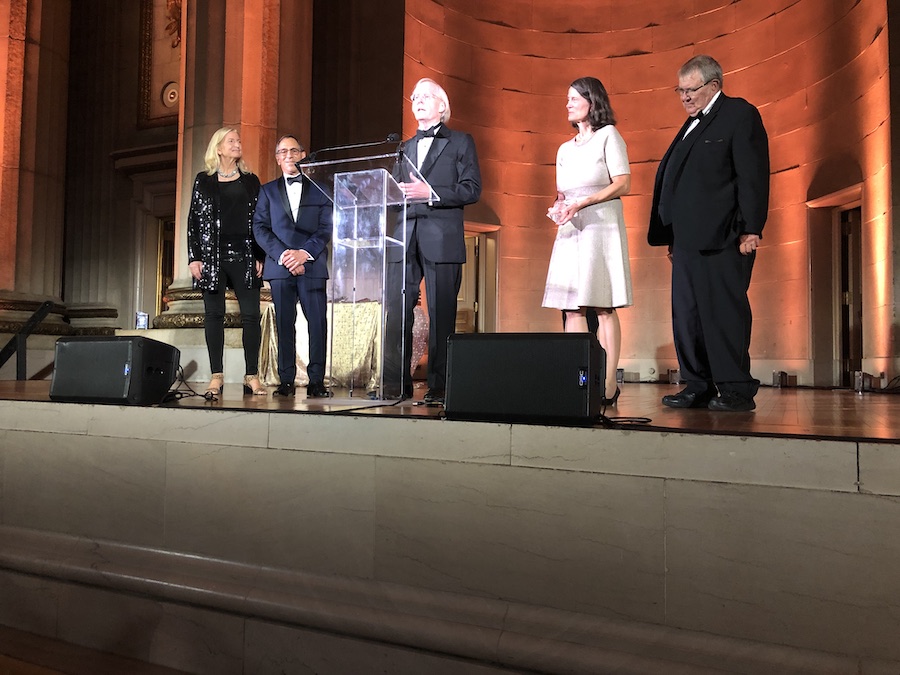
The Alliance to Save Energy named Georgia Institute of Technology School of Public Policy Regents’ and Brook Byers Professor of Sustainable Systems Marilyn Brown as a recipient of the 2019 Charles H. Percy Award for Public Service.
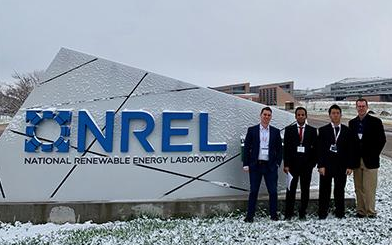
A Georgia Tech team won first place for its net-zero energy, urban single-family home at the 2019 Solar Decathlon Design Challenge at NREL! Partnered with the Grove Park Foundation and Atlanta Habitat for Humanity to make it affordable.
The Georgia Tech team was led by Tyler Pilet, Ph.D. in Architecture student with a focus area in high performance building (HPB). “Our team designed a community-driven, low cost, net-zero home in Grove Park,” said Pilet.
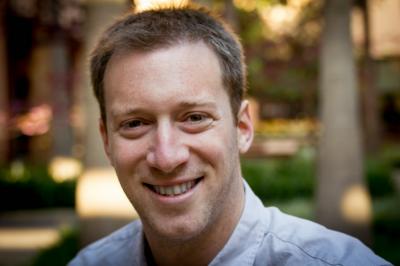
Scott Ganz and AEI Resident Fellow Alex Brill recently co-authored an op-ed on Real Clear Policy that examines the economic incidence of a revenue neutral carbon tax across the roughly 3,000 counties in the United States. In their analysis, the revenue associated with a $25 per ton tax is redistributed via a decrease in taxes on wages. Read article.

Electric vehicles equipped to pump electricity back into the grid could help make for a more resilient power system and make owners a little cash, to boot, according to a new U.S. Department of Energy report written principally by School of Public Policy. Regents Professor Marilyn Brown.

Marilyn Brown, who runs the climate and energy policy lab at Georgia Tech, agrees with Morgan that nuclear power is important for addressing climate change, and she said the paper, which she was not involved with, is a fair assessment of the challenges for nuclear.

A federal advisory group is urging the DOE to study electric vehicles' impact on the grid, including their potential use as emergency power sources (see the full story). "As EV adoption levels and grid integration become material, there is a need to better understand the pros and cons of alternative use cases that support different business models and provide different benefits for the grid, new businesses and the public," said the group's Smart Grid Subcommittee, led by professor Marilyn Brown
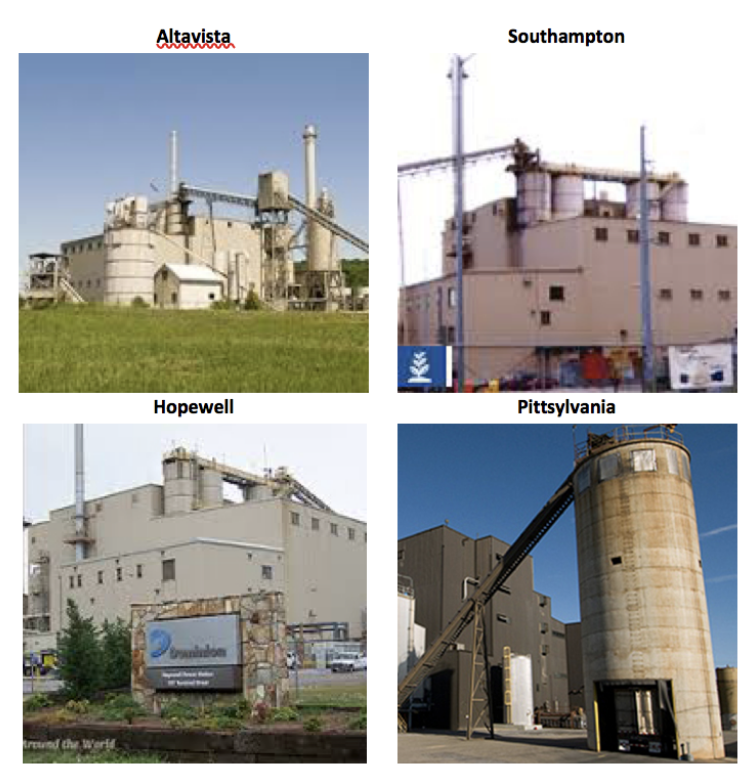 Buoyed by an April proclamation from EPA Administrator Scott Pruitt that forest biomass emissions are carbon neutral when used for energy production, a Georgia utility regulator wants to see more of the renewable fuel in Georgia Power Co.'s energy future.
Buoyed by an April proclamation from EPA Administrator Scott Pruitt that forest biomass emissions are carbon neutral when used for energy production, a Georgia utility regulator wants to see more of the renewable fuel in Georgia Power Co.'s energy future.
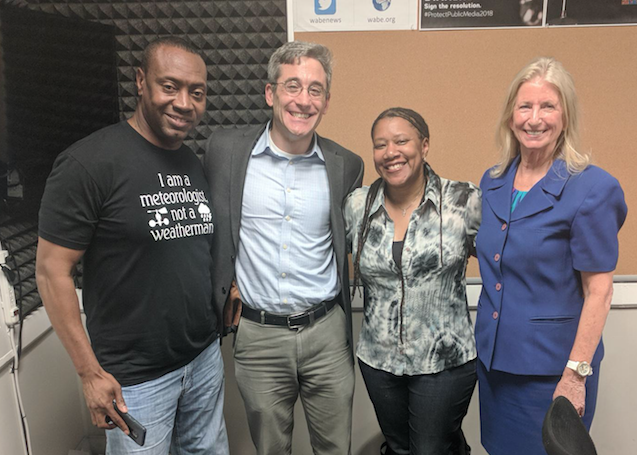
Last Friday (June 1, 2018) was the one year anniversary of President Donald Trump’s decision to pull out of the Paris Climate Accord. Since then, many states and cities have said they will continue to honor the agreement. Here in Georgia, a new consortium of university researchers is working to address the state’s most pertinent climate-related issues — it’s called the Georgia Climate Project, and it just published it’s first ‘roadmap’ for addressing climate change.
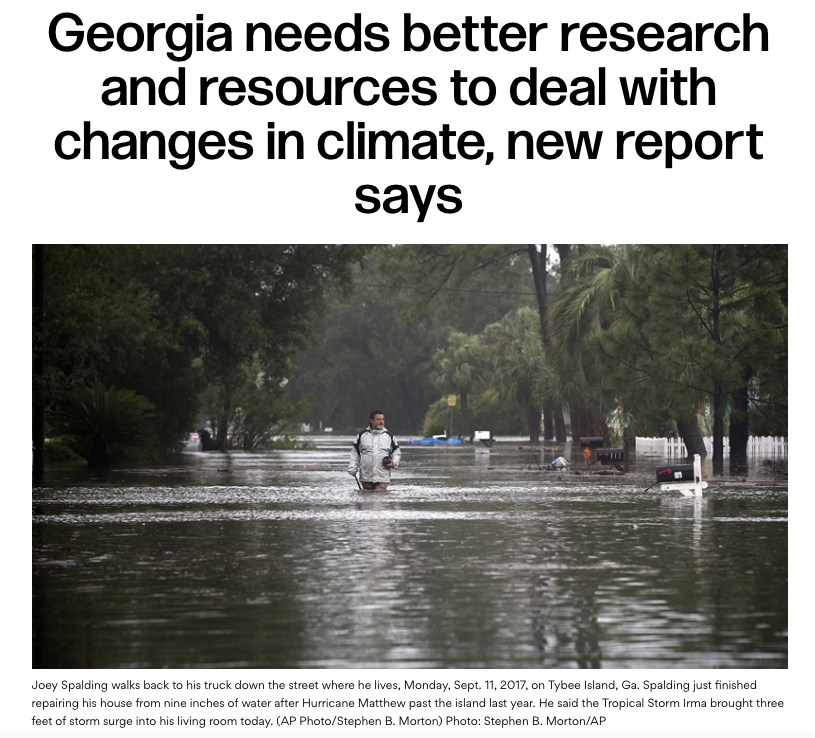
 Marilyn Brown and Dan Matisoff from the Climate and Energy Policy Lab, with other researchers from across Georgia published an article in the Environmental Management Journal outlining Climate Research Priorities for policy-makers, practitioners, and scientists in Georgia
Marilyn Brown and Dan Matisoff from the Climate and Energy Policy Lab, with other researchers from across Georgia published an article in the Environmental Management Journal outlining Climate Research Priorities for policy-makers, practitioners, and scientists in Georgia
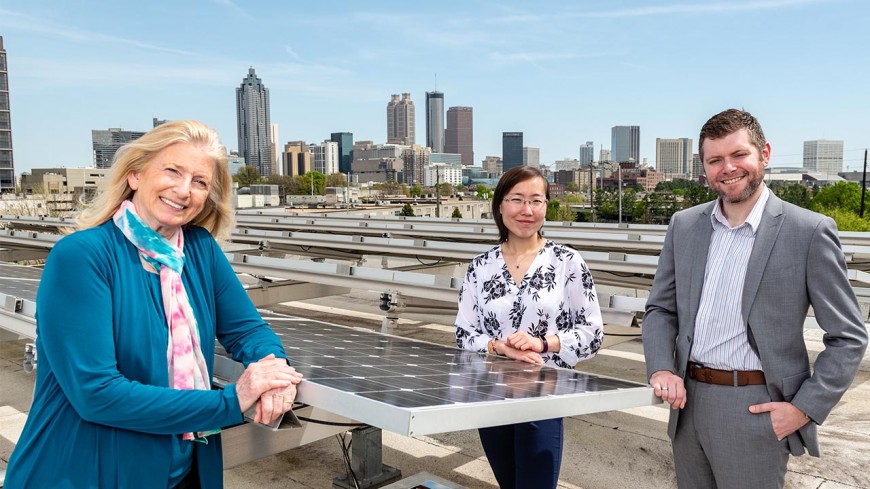
Georgia Tech Alumni’s AI-Based Energy Grid Modeling Platform is Helping Atlanta Planners Convert the City to Renewable Energy. Read the entire article about Matt Cox.
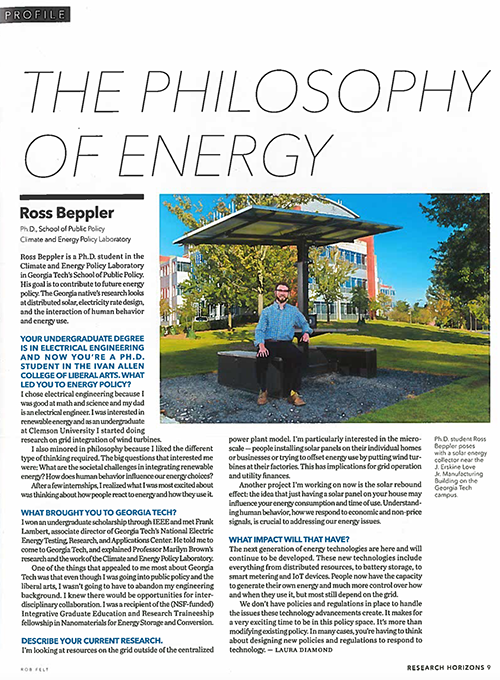
Ross Beppler is a Ph.D. student in the Climate and Energy Policy Laboratory in Georgia Tech's School of Public Policy. His goal is to contribute to future energy policy. The Georgia native's research looks at distributed solar, electricity rate design, and the interaction of human behavior and energy use.
Congratulations to our undergraduates Mary Elizabeth Burke (BS Public Policy) and Soobin Oh (BS Economics) for representing the Ivan Allen College this week at the Georgia Tech IDEaS Industry Day.
Liz Noll, a CEPL alum, weighed in on the proposed DOE budget cuts for Energy Efficiency and Renewable Energy, noting that gutting EERE funding is “like stopping research in home-movie technology after the VCR". Read the full article here: https://www.greentechmedia.com/articles/read/official-clean-energy-funding-should-be-cut-for-exceeding-goals#gs.ZI_mrQs
SLS Climate Change Fellows Program Faculty Co-Directors:
Research Working Group
Education Working Group
An affiliate of the United Nations has recognized a new Regional Center of Expertise in metro Atlanta as just the sixth such regional sustainability network in the United States. The RCE Greater Atlanta aims to advance education for sustainable development related to the U.N.
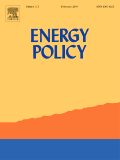 Marilyn Brown has just been named a new Editor of Energy Policy. Energy Policy is an international peer-reviewed journal addressing the policy implications of energy supply and use from their economic, social, planning and environmental aspects.
Marilyn Brown has just been named a new Editor of Energy Policy. Energy Policy is an international peer-reviewed journal addressing the policy implications of energy supply and use from their economic, social, planning and environmental aspects.
Dr. Marilyn Brown was quoted in an article called Climate Change Will Always Hurt Poor People the Most by Ryan F. Mandelbaum. Click here to read the full article: https://gizmodo.com/climate-change-will-always-hurt-poor-people-the-most-1797915374.
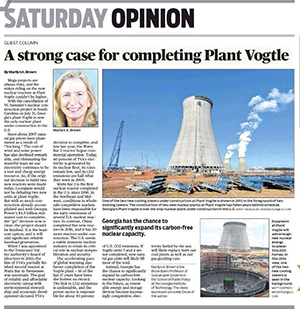
Marilyn A. Brown, Professor, Georgia Institute of Technology
Mega projects are always risky, and the stakes riding on the new nuclear reactors at Plant Vogtle couldn’t be higher.
With the cancellation of VC Summer’s nuclear construction project in South Carolina on July 31, Georgia’s plant Vogtle is now the only nuclear plant under construction in the U.S.
 Dr. Marilyn Brown gave an interview with NPR's Molly Samuel.
Dr. Marilyn Brown gave an interview with NPR's Molly Samuel.
Read the article here: http://news.wabe.org/post/just-1-plant-under-construction-nuclear-renaissance-stalls
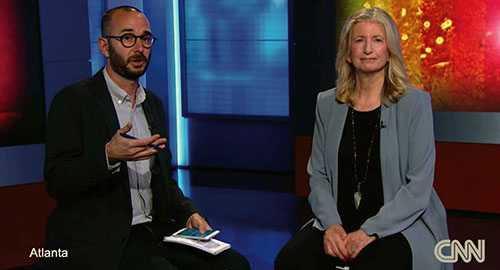
Dr. Marilyn Brown and John Sutter discuss President Trump’s attempts to undo many Obama-era climate regulations. Click here to hear the entire interview.

Trump's executive order will all but ensure America fails to meet its goals under the international agreement to fight climate change.
BY EMILY ATKIN
 DONALD TRUMP ORDERS EPA TO UNWIND CLEAN POWER PLAN IN SETBACK FOR “VITALLY IMPORTANT” CLEAN AIR
DONALD TRUMP ORDERS EPA TO UNWIND CLEAN POWER PLAN IN SETBACK FOR “VITALLY IMPORTANT” CLEAN AIR
White House tries to force a national realignment away from renewable energy back to fossil fuels
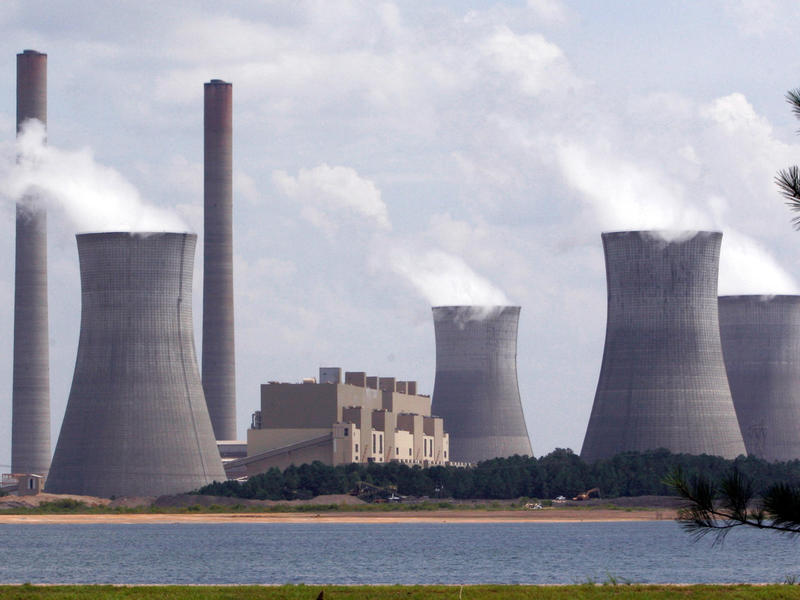 ...“Market forces, particularly with gas prices being so low, have created a great deal of momentum in the right direction,” said Marilyn Brown, a professor at Georgia Tech's School of Public Policy. “But those are all really short-term advances. The question is, what are we going to be able to do to meet the longer-term goals? There's so much uncertainty.” ...
...“Market forces, particularly with gas prices being so low, have created a great deal of momentum in the right direction,” said Marilyn Brown, a professor at Georgia Tech's School of Public Policy. “But those are all really short-term advances. The question is, what are we going to be able to do to meet the longer-term goals? There's so much uncertainty.” ...
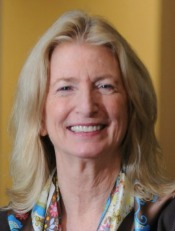 "Professor Marilyn Brown talks about demand side management and her new book, Green Savings: How Policies and Markets Drive Energy Efficiency.
"Professor Marilyn Brown talks about demand side management and her new book, Green Savings: How Policies and Markets Drive Energy Efficiency.
 The Georgia Institute of Technology's School of Public Policy and Emory University's Climate @ Emory hosted an event Choosing our Energy Future:
The Georgia Institute of Technology's School of Public Policy and Emory University's Climate @ Emory hosted an event Choosing our Energy Future:
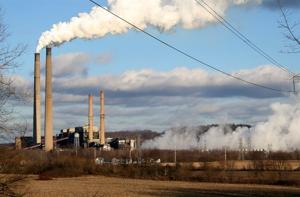
Marilyn Brown, a public policy professor, School of Public Policy at Georgia Tech, says their model looked at implementing the Clean Power Plan with a combination of renewable and energy-efficiency policies plus a modest price on carbon.
 Marilyn Brown, the project’s lead researcher and the Brook Byers Professor of Sustainable Systems in the School of Public Policy at Georgia Tech tells Think Progress, “To minimize costs, the country needs to reduce its coal consumption more rapidly, continue to
Marilyn Brown, the project’s lead researcher and the Brook Byers Professor of Sustainable Systems in the School of Public Policy at Georgia Tech tells Think Progress, “To minimize costs, the country needs to reduce its coal consumption more rapidly, continue to
The Georgia Tech Working Paper on "Low-Carbon Electricity Pathways for the U.S. and the South" has just been published as announced in a Georgia Tech press release this morning. The report is attached to the press release and supporting materials can be found on the Clean Power Pathways project page.
New Research says an EPA plan to reduce carbon emissions should actually cut electricity bills, ... Professor Marilyn Brown from the Georgia Tech School of Public Policy says efficiency and shifting to wind, solar and biomass should make a typical utility bill somewhat smaller. "We see a reduction of, depending on the state, anywhere from 5 to 10 percent rather than an increase," she relates.
Two new reports debunk claims that the EPA's Clean Power Plan would cost Michiganders in the form of higher energy bills.
Elizabeth Noll, of the Natural Resources Defense Council and MSPP graduate, testified before the House Subcommittee on Energy and Power on Energy Efficiency. The hearing focused on the recently released discussion draft of potential energy efficiency legislation. In her blog, Noll states three provisions, "that seek to weaken, delay, and repeal strong clean energy programs that work and are what Americans want."
Marilyn Brown discusses the Energy-Efficiency Gap at the Memorial Union of Iowa State University. Read Full Article.
A blog article for Leonardo ENERGY summarizes our article on “Forty years of energy security…” with the following highlights:
A 6/3/14 EnergyWire story quotes Marilyn Brown in several places, along with Chuck Eaton (Georgia Commissioner), Tom Fanning (CEO, Southern Company), and Bill Johnson (CEO, TVA). It's one of the best Clean Air Act Section 111D stories focused on utilities in the South. Read Full Article
CNN's Elizabeth Landau wrote an article on the Intergovernmental Panel on Climate Change's report on Mitigation. Here is a brief exerpt from her article:
U.N. report: Don't delay on climate change
The longer we wait to mitigate the detrimental levels of carbon dioxide thrown into the atmosphere, the harder it's going to be to work against rising temperatures, says a leaked draft report from the United Nations Intergovernmental Panel on Climate Change, obtained by CNN.
"Many building owners overlook opportunities to improve the energy performance of their buildings. New analyses from the Climate and Energy Policy Laborator at Georgia Tech, US, suggest that a policy called 'energy benchmarking' offers a low-cost way of addressing this issue whilst reducing pollution and saving money." -IOP: Environmental Research Web Read the full article here.
Matthew Cox spoke regarding Georgia Power expanding Solar in an article by the GPB news. Read the full article.
Dr. Marilyn Brown has been confirmed to the TVA Board for another five-year term. She will serve on the TVA board through 2017.
The Senate confirmed Dr. Brown by unanimous consent on September 10, 2013. Read the full TVA news release.